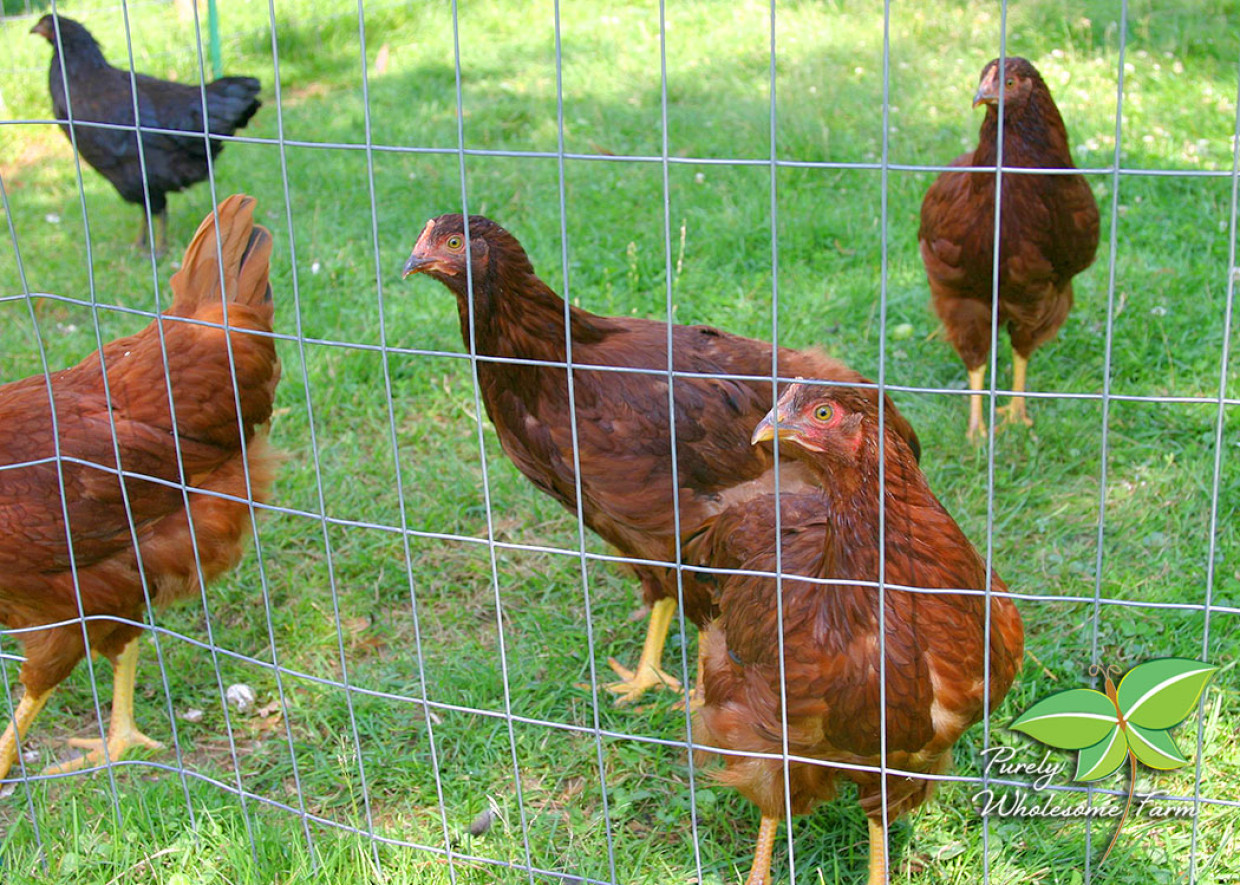Why Raise Chickens?

I have been raising chickens on and off since I was thirteen years old. As my boyfriend and I are embarking on this “be more sustainable” venture, chickens are the perfect choice to start with. In fact, if you have even a little bit of yard and are interested in being more sustainable, chickens are a must have. Here’s why.
If I had a dollar for every time someone asked me, “Don’t you need a rooster to have eggs?” Well, I wouldn’t be rich, but I might be able to go out for lunch. I have even had people tell me they don’t want to raise chickens because they don’t want to deal with having a rooster. Well, I’m here to tell you that chickens will lay eggs even if they have never even seen a rooster. Chickens are that cool. So, if your hesitation is having a rooster around, rest assured. You don’t need one.
A good egg-laying breed of chicken will lay up to 5-6 eggs per week in good conditions. Even one chicken in your yard will give a family of two plenty of eggs. Two to four chickens will easily feed a family of four even if you bake a lot. Six chickens will give you enough for you and your family AND friends.
The cost for upkeep is minimal. If you have enough room, free-ranging your chickens is a great way to remove ticks, ants and other insects from your yard while fertilizing your grass. It also keeps your chickens healthy and happy on a minimal amount of feed. You may still want to provide some feed in the mornings or evenings, but most of their daily intake will be from what they find scratching around the yard. The only watch out with free-ranging is predators. (Okay, and you may not want to walk barefoot around where they’ve been scratching.)
I also give our chickens any vegetable kitchen scraps. They love this and come running when they hear me come out the kitchen door. They LOVE tomatoes, fight over peels and chase each other for the leftover ears of corn on the cob. Adding kitchen scraps is a healthy way to increase their food intake and reduce the amount of grain you need to feed. It also gives them something fresh to munch on during the winter months. But remember…it’s vegetable kitchen scraps.
Keep in mind that egg production slows in the winter months, as chickens age or if they become stressed. Keeping a light on in the coop during the darker months will help. I typically use more hay or straw for the bedding in the colder months to help keep them warm. They also get more feed as they can’t go out to scavenge as much, if at all.
Egg production will reduce approximately ten percent each year, so you will want to cull your older chickens and replace them with new ones every couple of years or so. While older chickens are not good for roasters and egg laying chickens tend to be less meaty, they still make excellent stew birds.
So there you have it. If you have ever considered raising chickens, I encourage you to give it a try. Your local feed store will often start taking orders for baby chicks in March, but you can also check out online catalogs or look for a local hatchery.
Do some research on breeds. Up here in the north we like the heartier breeds. I have always raised Rhode Island Reds, though I may try the newer New Hampshire Reds at some point. These birds are bigger than many egg-laying birds, which discourages predators (albeit only slightly), they are heartier in the colder months, disease resistant and are prolific layers.
You will find that every chicken owner has his or her favorites and really it is all about personal choice. All chickens lay eggs and you have to be happy with the birds you own.
We have a mix of Rhode Island Reds and Black Stars and one RIR Rooster who “accidentally” came with the group. As long as he behaves we figure he can stick around. We’ve named him Stu, just in case. Who knows, maybe we’ll get a broody chicken and next year we’ll have our own baby chicks.
Reply